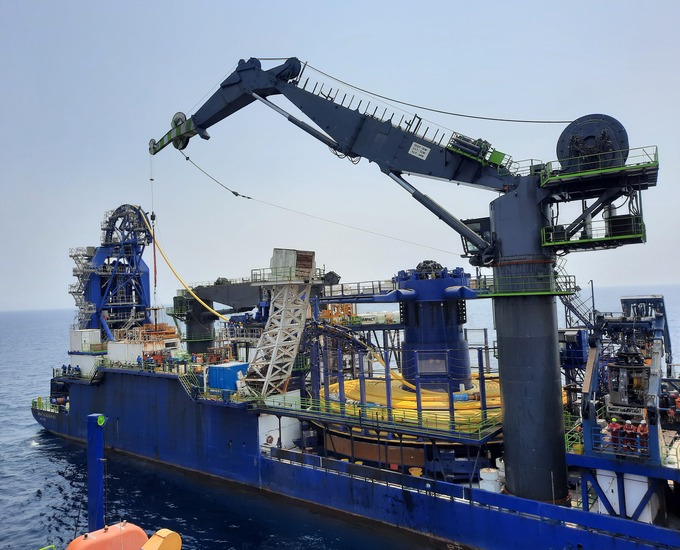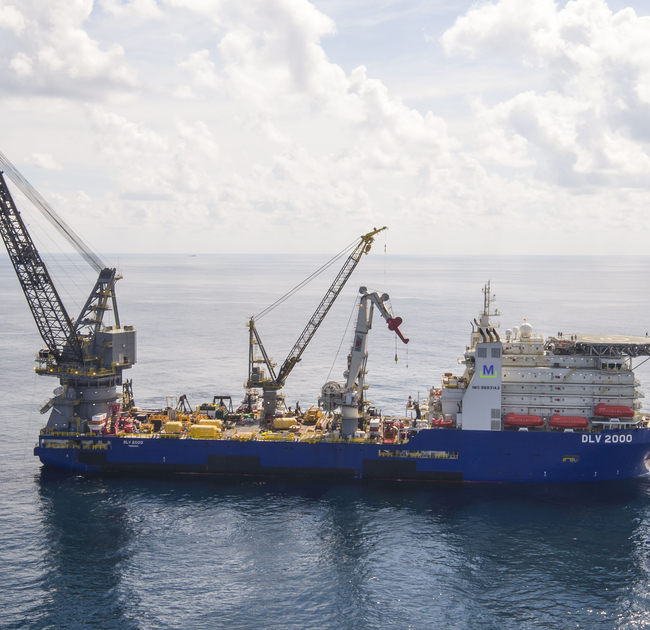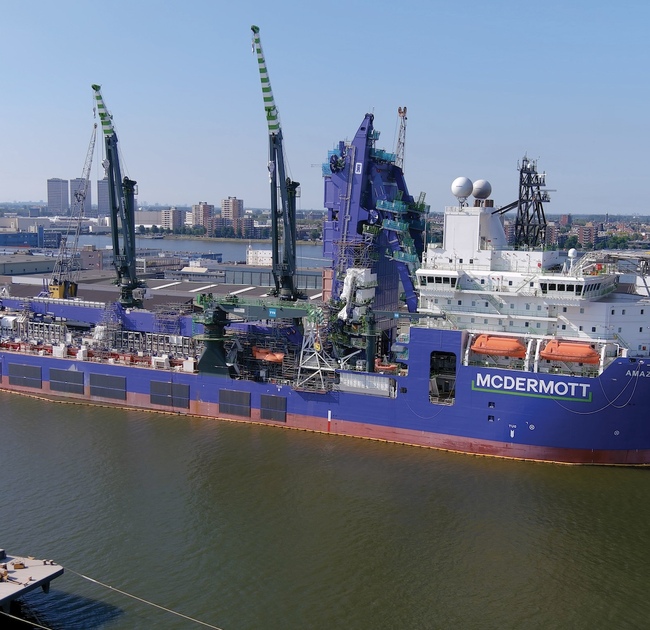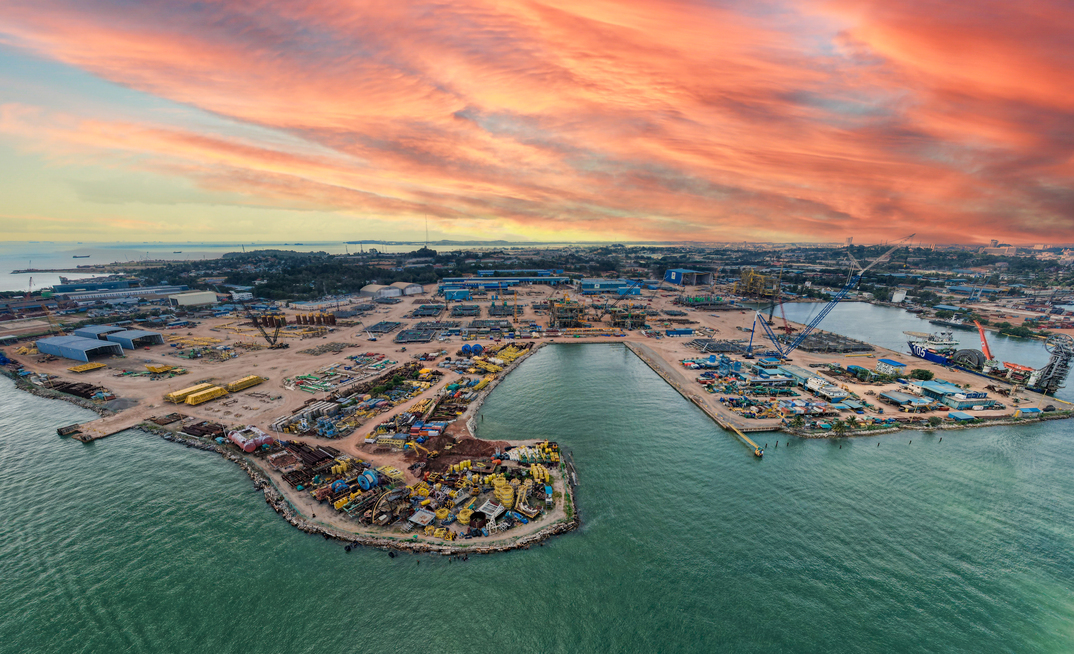As the world continues to grapple with the impact of climate change and high energy prices, many industries have been shifting their focus to decarbonisation.
Meanwhile, global engineering and construction solutions provider McDermott International has been working hard to help others with their energy transition and decarbonisation goals.
For Mahesh Swaminathan, McDermott's Senior Vice President Subsea & Floating Facilities, reducing the company's carbon footprint extends to how and what they build for themselves and for the companies they work with.

"We are focused on net zero solutions and that means that any facility we build, as well as the processes we use to build, should aim to have a net zero carbon footprint," Swaminathan said. "McDermott has short term targets set around renewable energy. We are working towards increasing our renewable energy use through installation of onsite solar. We are also working towards accessing offsite renewable energy through energy attribute certificates (EACs) or power purchasing agreements (PPAs) where available."
Operating in over 54 countries, McDermott International is well-placed to initiate real change across several industries with its technology-driven approach to responsibly harness and transform global energy resources that are still heavily required all over the world.
In January of this year, McDermott launched ArborXD™. It's a new web-based tool that supports carbon-conscious decision making for energy customers interested in shifting to net-zero operations. ArborXD™ uses data inputs to provide estimates and reports on the potential carbon impact of energy facilities well before construction begins.
This follows a memorandum of understanding McDermott signed with Shell in November 2021, to collaborate on decarbonising construction. McDermott's fabrication facilities in Indonesia, Dubai, China and Mexico provide the perfect environment to assess construction emissions. The agreement means McDermott and Shell will be able to explore opportunities to reduce, and ultimately eliminate, emissions from construction through new pathways such as low carbon fuels, renewable power, digital solutions and decarbonising marine construction vessels.
Swaminathan said the company's newer marine construction fleet has been a crucial element in establishing McDermott as a leader in subsea and deepwater projects.
Swaminathan is talking about the company's unique ability to provide the work end-to-end as a single contractor. McDermott continues to invest in its fleet including the recent conversion of the Amazon, which has been outfitted with cutting edge technology and reduced human interface to address the ultra-deepwater market.

"The Amazon means we can now integrate with key customers and provide a better offering. It has already been booked out for the next couple of years," Swaminathan added. "The market is always changing, so we will always adapt to meet the needs of our core customers."
But there is much more to McDermott's repertoire than marine construction vessels with its onshore construction, fabrication services, technology, digital project delivery, engineering, consulting, procurement and operations sectors.
McDermott already has a strong presence in Asia Pacific, especially in Australia where it has been operating for more than 50 years. Swaminathan said operations have grown exponentially since 2012.
"We have had a significant increase in what we are delivering in Australia and continue to work on major subsea developments and floating facilities," he said. "We feel that we are in the right place, staying close to customers so we can provide more assistance when they need it."
Like many others in the industry, McDermott is still recovering from the impact of the COVID-19 pandemic which caused an industry-wide slowdown.

"We had to overcome a lot of challenges in a short amount of time," Swaminathan said. "The last six months has seen a lot of change in the industry and with the pandemic still ongoing, we continue to face challenges on a daily basis."
"2020 was a slow year," he added. "But we knew we would make it through these challenging times with a stronger workforce and the ability to grow. We saw this already in 2021 when we were awarded one of the largest projects from Woodside."
This is the Scarborough floating production unit in Western Australia, which is the largest to be installed in the world.
However, Swaminathan said there is another challenge on the horizon for technical companies like McDermott, with the industry facing a skills shortage.
"There has been a strong downward trend with not enough young people moving into the energy industry," he said. "Younger people associate technology with companies like Google, and they don't recognise that traditional industries can also offer great opportunities."
"This industry has evolved and grown and it is becoming more technologically interesting," he added.
The energy transition is rapidly growing with a strong focus on decarbonisation in order to meet net zero emissions targets around the world. For a company like McDermott, the energy transition can only continue to drive more digital innovation.

"We already see these technological advancements in subsea and deepwater developments where we are doing work 2,500 to 3,000 metres below sea level," Swaminathan said. "It's too deep to send people down so it has to be automated."
This reinforces the shift from manual operators to highly-skilled technical experts able to wield the robots which will be required.
"We are witnessing this now as the industry shifts from being labour-intensive to more automated manufacturing," Swaminathan said. "This also means we can reduce our carbon footprint with advanced technology. We are doing this by providing digital capabilities for customers, and key technological changes in fabrication and installation."
McDermott is standing its ground in the energy industry as it continues to advance and transform in line with its customers.
"Most of the community is looking at how we are decarbonising," Swaminathan said. "Others may think decarbonising is more expensive. We think there are ways it can be done in a cost-effective way and that it's the right thing to do."
ABOUT THIS COMPANY
McDermott
McDermott is a premier, fully-integrated provider of engineering and construction solutions to the energy industry.
HEAD OFFICE:
- Level 5, 15-17 William Street, Perth WA 6000 Australia
- Phone: +61 8 9488 1500
- Website: https://www.mcdermott.com























